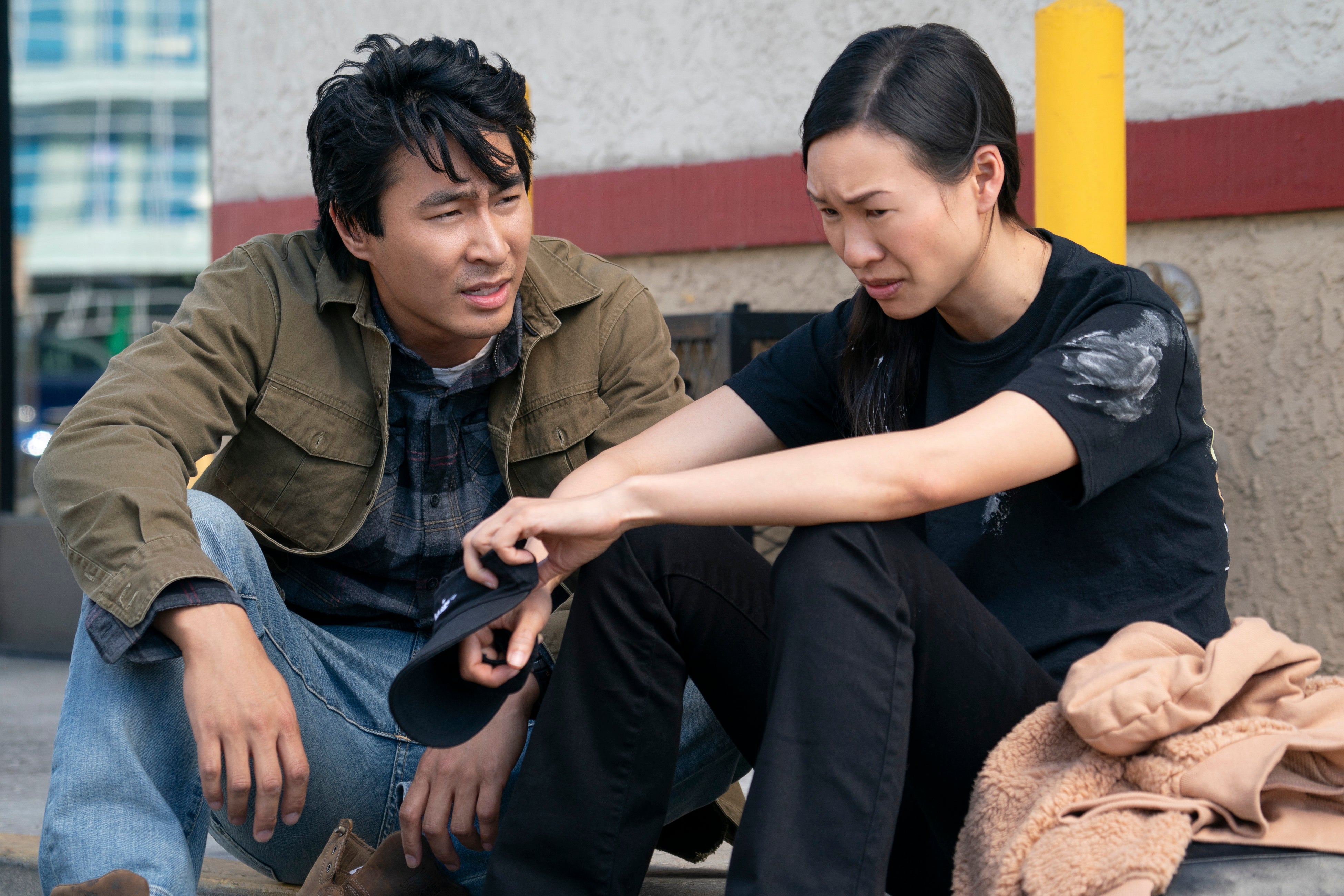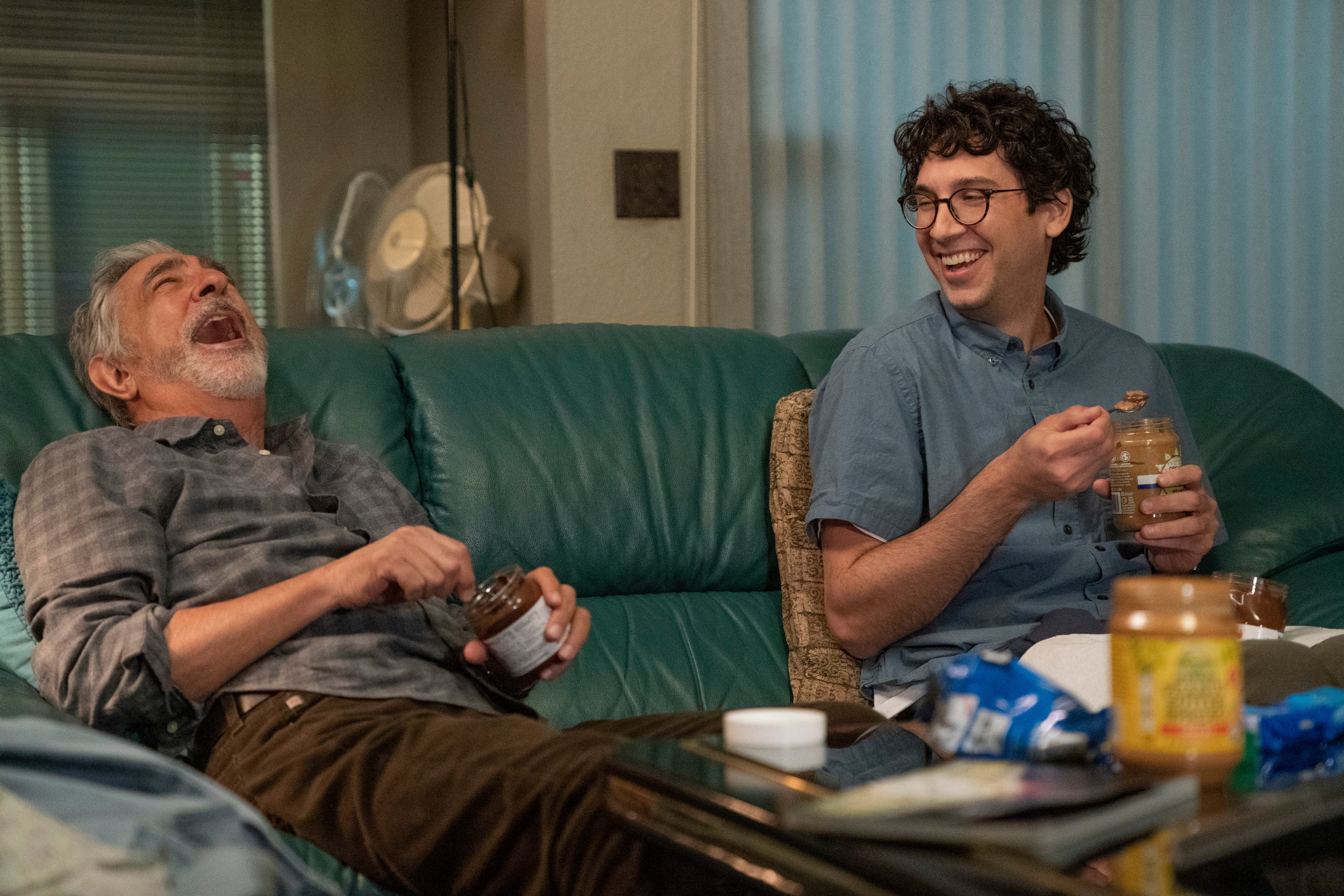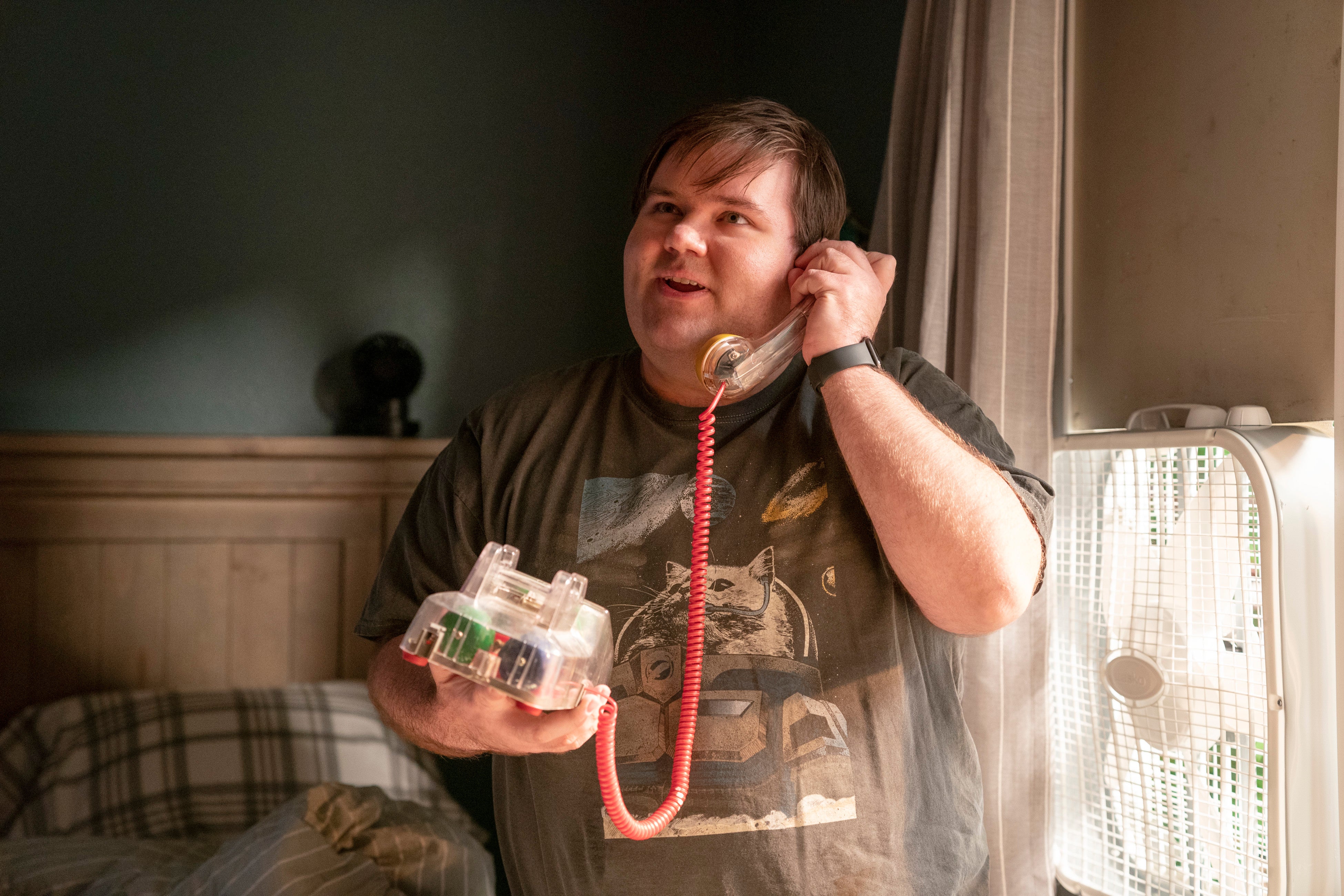The cast of As We See It on their joyous, groundbreaking autism comedy
The new series from ‘Friday Night Lights’ creator Jason Katims follows three autistic roommates as they navigate friendships, romance and work. Ellie Harrison hears from the cast about the emotional process of making the series and the impact it could have


Your support helps us to tell the story
From reproductive rights to climate change to Big Tech, The Independent is on the ground when the story is developing. Whether it's investigating the financials of Elon Musk's pro-Trump PAC or producing our latest documentary, 'The A Word', which shines a light on the American women fighting for reproductive rights, we know how important it is to parse out the facts from the messaging.
At such a critical moment in US history, we need reporters on the ground. Your donation allows us to keep sending journalists to speak to both sides of the story.
The Independent is trusted by Americans across the entire political spectrum. And unlike many other quality news outlets, we choose not to lock Americans out of our reporting and analysis with paywalls. We believe quality journalism should be available to everyone, paid for by those who can afford it.
Your support makes all the difference.Sue Ann Pien spent her teenage years acting her way through life. “I grew up thinking I was weird, hiding things about myself that I thought were hideous,” says the 42-year-old. She wasn’t weird or hideous at all – she was autistic. “I thought something was wrong with me. That was the message over and over, repeatedly, given to me. Especially because I’m Asian, so in that community there can be a lot of pressure to conform. I’m still not sure I do it very well. I have to take on a persona: ‘How would this person be going to visit their family members?’ I act my way through social events.”
Now, Pien is doing a different kind of acting altogether – and making a living from it. She stars as Violet in the joyous comedy-drama As We See It. Based on the Israeli series On the Spectrum, the Amazon show follows three twenty-something roommates with autism as they try to live independently, keep a job, make friends and fall in love. It was created by Friday Night Lights writer Jason Katims, who has a son with Asperger’s, and describes the project as “deeply personal” to him.
All three of the series’ leads – Albert Rutecki (Harrison), Sue Ann Pien (Violet) and Rick Glassman (Jack) – are on the autism spectrum. Mare of Easttown’s Sosie Bacon plays their support worker, Mandy, who in the opening scene attempts to encourage Harrison to walk one block to the local café. As Harrison steps out of his building, he is engulfed in the noisy buzz of the outside world – the scrape of a skateboarder’s wheels, a baby’s piercing cry, the roar of a rubbish truck. These sounds cause him discomfort, but he soldiers on. “You’ve got this, OK?” says Mandy. “No big deal. You can totally do it.”
Rutecki empathised with his character in that moment. Processing sensory information can be difficult for autistic people, with many having sensitivities to sights, sounds, smells, tastes and touch. “I do have some sensory issues myself,” says the 28-year-old, who had never acted before this show. “There have been a few episodes where it’s really affected me. One of the worst was at a play. During the intermission, suddenly hearing 300 people talking at once, all the discordant sound, everything was just too overwhelming. I had to find a quiet place to hide.”
When we first meet Glassman’s character Jack, the tech whizz is telling his boss he has “inferior intelligence”. He’s promptly fired. “I have a bit more awareness than Jack, but I’ve always had a difficult time lying,” says the 37-year-old, who’s made a career as a stand-up comedian. “It’s not necessarily a moral thing – it just doesn’t make sense to me. It’s hard to keep track and I can’t always tell when other people are lying, intuitively.”
Pien’s character Violet has her first scene in the fast-food restaurant where she works. Violet flirts outrageously with a customer, telling him she wants to “screw” him. The customer’s wife flips. “This b**** just told my husband she wants to f*** him. Are you retarded?” she shrieks. “Thank you for your patronage,” says Violet.
“That was hilarious to film,” says 42-year-old Pien. “From a young age I’ve had people telling me I can’t say certain things. Like, ‘That’s really inappropriate.’ But there’s so much hypocrisy in the world. Everyone’s going around stealing everyone’s girlfriends or boyfriends, but they lie about it. For me, because I’m on the spectrum, I was like, ‘Oh, I thought this was what everybody did.’”

Pien has been acting for 17 years, but this is her first big role. “There’s so much of me, innately, that understood Violet,” she says. “I know what she feels in that moment, why she’s saying that, why she’s doing that. This hidden side of me was finally getting a chance to be revealed.”
Desperate to blend in, Violet sets out to find a “normal” boyfriend. She goes on a date with a guy she meets on Bumble, an app her protective brother Van (Chris Pang) has forbidden. Violet’s date ditches her within just a few minutes of meeting, and Van is furious when he comes to collect her, dragging her out of the restaurant. “When I read the script I cried,” says Pien. “My heart and soul is shared with Violet.”

Watch Apple TV+ free for 7 days
New subscribers only. £8.99/mo. after free trial. Plan auto-renews until cancelled

Watch Apple TV+ free for 7 days
New subscribers only. £8.99/mo. after free trial. Plan auto-renews until cancelled
Glassman, who was only diagnosed with autism five years ago, also found himself looking inward. “As a kid, I went to special classes and a special school, but I really didn’t know.” Playing Jack helped him see his own childhood with a new understanding. “I didn’t realise I didn’t have friends when I was young because I wasn’t bullied,” he says. “People would make excuses not to play with me and I would believe them. Now I know how they were looking at me. I’m seeing it properly for the first time.”

One particularly affecting conversation between Jack and his father Lou (played by Joe Mantegna, who has an autistic daughter) offers a brief insight into being the parent of an autistic child. “Do you want your dad to support you forever?” asks Lou, who has cancer and doesn’t know how much longer he’ll be around. “You need to have a job and remember to pay your rent, and talk to people when they look at you, and when a girl smiles to smile back. I need to know you’re going to be OK, Jack. Do you hear me?” As Glassman reflects on the scene, he begins to cry. “It felt very real,” he says. “There were definitely moments where I was trying to relate to my dad in real life, who I’m very, very close with.”
Glassman hopes As We See It will help people realise they haven’t got autism all figured out. “People think they know what autism is, and they don’t,” he says. “That’s what I’ve learned through my diagnosis, and big time through the show. There’s this saying, ‘When you’ve met one person with autism, you’ve met one person with autism.’”

Rutecki agrees. “I hope people understand that there’s a broad range of people on the autism spectrum and we’re not just collapsible, one-dimensional tragedies – we’re people.”
Pien wants As We See It to help create a “kinder world”. “I hope people will be more patient and understanding when they encounter somebody with differences,” she says. “There are a lot of young people on the spectrum who are struggling to find an identity. People deserve to find places where they’re loved and cherished.”
‘As We See It’ premieres on Amazon Prime Video on 21 January



Join our commenting forum
Join thought-provoking conversations, follow other Independent readers and see their replies
Comments